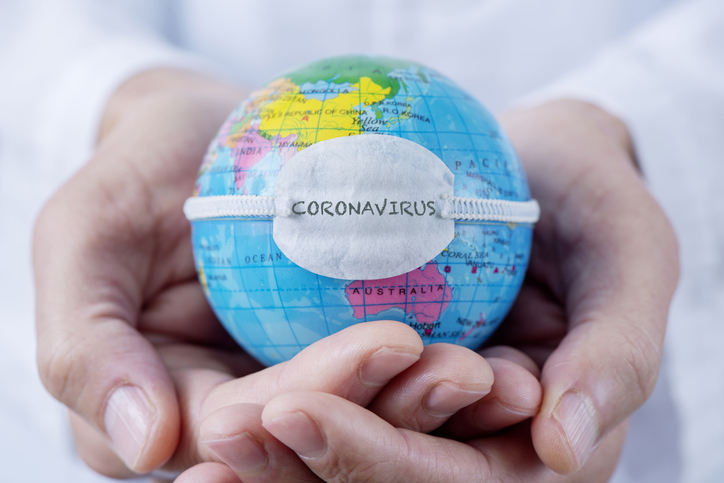Pandemic Wars: A New Technology Hope

If there’s anything we’ve learned from COVID-19, it is how interconnected the world is.
At the time of this writing, WorldoMeters reported that there are 81,000 cases in China, 59,000 in Italy, 33,600 in the U.S., and 21,600 in Iran. From Asia to Europe and from the Americas to Oceania, there have been 337,000 reported cases.
The impact of the novel coronavirus has been felt globally across all strata of society in many industries and sectors, touching the lives of your regular man-in-the-street to top celebrities and global politicians. It is why Madonna called COVID-19 “the great equalizer.”
World gets more connected
With COVID-19 wiping out market gains under the three-year Trump administration, economies everywhere are teetering on recession.
G7 leaders pledged in a joint statement that they would use “all fiscal and monetary-policy tools” to support workers and companies most affected by the pandemic.
Closer to home, Eli Lee, head of investment strategy at Bank Of Singapore, cautions that it was now time to take a “rather defensive stance” and that it was “too early to talk about the market bottoming out”, foreseeing more volatility in Asian markets ahead.
Amidst these market swings, Lee advises that “it is ever more important for investors to remain rational and focus on the longer-term goals of their investment strategy.”
SMEs cope with new measures
While the full effects are still unclear, current disruptions across supply chains around the world because of the many border bans and travel restrictions will have serious business ramifications.
Supply chains that begin or go through China will face challenges as China factories shut down in Q1 and companies making and selling products struggle to secure supply lines. Meanwhile the global airlines industry is taking a hit, worse than 9/11 or SARS, according to analysts.
In Singapore, social distancing measures introduced by the Ministry of Health require public venues like eateries, shops and cinemas to keep patrons at least 1m apart. This will impact business revenues in the long run, but business owners will comply for now, with “safety first” mindsets firmly embedded across Singapore society.
Many offices have implemented work-from-home arrangements for their staff. Jerry Chua, 47, an office manager of an accounting firm, says that the recent disruptions might cause “unintended delays from our end,” a sentiment echoed in the myriad of business emails that many received in their mailboxes from various service providers and retailers recently.
Technology is changing our response
Top tech companies including Amazon, Microsoft, IBM and others have convened to discuss building AI tools to help medical researchers glean insights from a database of COVID-19 related scholarly literature.
According to Michael Kratsios, chief technology officer of the U.S. and deputy assistant to the President at the White House Office of Science and Technology Policy, “Cutting-edge technology companies and major online platforms will play a critical role in this all-hands-on-deck effort.”
While the impact of COVID-19 has been far reaching, the world as it stands now differs greatly from when we fought the 1918 Spanish Flu or even the 2003 SARS Syndrome.
Today, according to the United Nations’ International Telecommunications Union (ITU), 53.6% of the world’s population or 4.1 billion people are online. This is more than half the global population and shows that more than ever before, we should have the tools to handle such global pandemics.
Working from home across many industries would have been unthinkable just two decades ago. Today, we have a buffet of solutions, such as Google Hangouts and Task World, to name a couple.
Using electronic location tracker wristbands with geofencing technologies, the Hong Kong government is ensuring that people who face compulsory quarantines do not stray from their homes.
Developed by the Singapore Government’s Technology Agency (GovTech) and Ministry of Health, “TraceTogether”, a contact-tracing smartphone app, is aiding local authorities in quickly tracking people who have been exposed to confirmed COVID-19 cases.
As more instances of technology aiding the curb of the COVID-19 spread surfaces, as well as to mitigate the slowdown of businesses and economies — not to mention the search for medical solutions and breakthroughs for the virus — we are well-placed, now more than ever, to handle pandemics like COVID-19. At least technology wise.
Photo credit: iStockphoto/nito100







